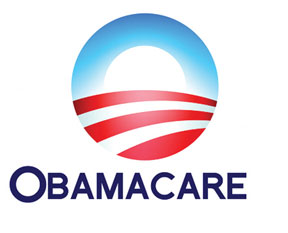
 Kevin Dedner explains that Obamacare isn’t the only answer to American health problems
Kevin Dedner explains that Obamacare isn’t the only answer to American health problems
By Kevin Dedner, MPH
Every other week I take Amtrak’s train #56 up the Northeast corridor of the United States. I board the train in Washington D.C.’s beautiful Union Station and deboard in Trenton, N.J. The train travels through urban and rural parts of the Northeast, BIG cities, and small towns. For some time, I have been saying to friends that a train ride through America reveals the scope of our social and public health problems. Being from the South, I know that train tracks often divide communities along racial lines and run between the “haves” and “have nots.” My train ride paints a vivid picture of this reality. And, as I travel, I wrestle with the fact that a significant predictor of one’s health and life expectancy is one’s zip code.
Lately, much attention has been focused on the rocky launch of the enrollment period for the Health Care Exchange. Health insurance is critically important but the notion that having access to care will create a healthy America simply isn’t true. One study found that shortfalls in medical care only contribute 10 percent to premature death. The same study showed that our genes–our DNA, only count for 30 percent of premature death. Interestingly, the study found that behavioral patterns, environ-mental exposure, and social circumstances add up to 60 per-cent of the cause of premature deaths.
Train #56 travels through some of the poorest communities in America. The streets of these communities are war zones. People are being exposed to gun violence and violent acts daily, causing a level of stress and trauma that we are just beginning to understand. From the train, I can often see the gray smoke rushing through the air from factories and plants and mounds of trash at dumps located next to these communities. There’s one landfill right outside of Trenton, N.J. that has caught my attention. I first noticed the beautiful lake view of water but it was odd to me that trailer homes were located on such premium real estate. Then, when I looked off a distance, I noticed the huge man-made mound and trash on the other side. Now it all made sense.
It doesn’t take a genius to realize that toxic waste and living near toxic waste can’t be good for one’s health. William Nichols notes in a work on the social stratification of pollution, “both private and government-run waste disposal companies have elected to locate an increasing number of their landfills near neighborhoods with predominantly minority and low income residents.”
From Train #56, I see boarded up buildings, including once thriving factories. It is utterly depressing. Neighbor-hoods often look abandoned and then I’ll see children headed to school. Many of them are accompanied by their parents. I wonder what their parents’ day will be filled with. Are they off to jobs that provide a decent living? Or is there job looking for a job? Your see, these com-munities also have chronic un-employment, which further complicates its problems. The unemployment rate today hovers around 7 percent. But Black unemployment is consistently twice the national average. And in case you missed it, the Black youth unemployment rate for ages 16-19 is at 36 percent, 393 percent higher than the national unemployment rate, according to data released by the Bureau of Labor Statistics (BLS).
What we need is a robust prevention strategy in America with the explicit goal of creating healthy communities to live in. We have to start thinking about all of the social determinants that contribute to health. Starting with access to health care, the prevention strategy should include us dealing with inadequacies of our communities. Too many communities lack the basic infrastructure and opportunity needed to be healthy. This infrastructure includes: access to care, safe places to walk and play and access to healthy foods. The infrastructure also includes the opportunity to receive a good education, for individuals to provide a sufficient living for their families and smart coordination and delivery of social services. When communities lack these essentials, violence, crime and drug abuse are often the result. More importantly, hope dies.
Health insurance is critically important. But, let’s not forget a significant predictor of health and life expectancy – a person’s zip code.


Be the first to comment